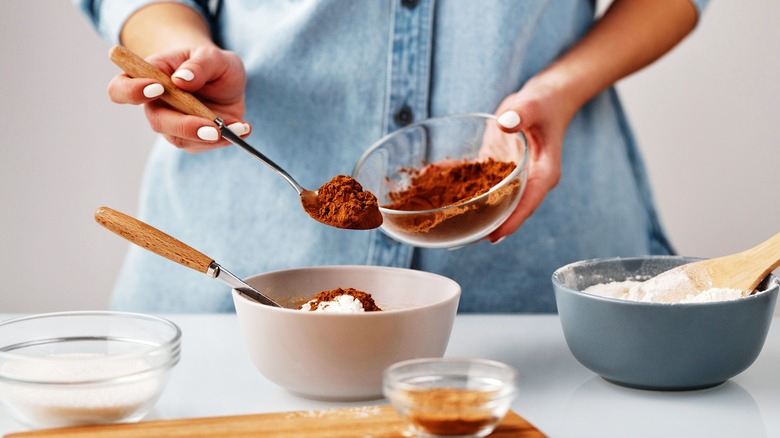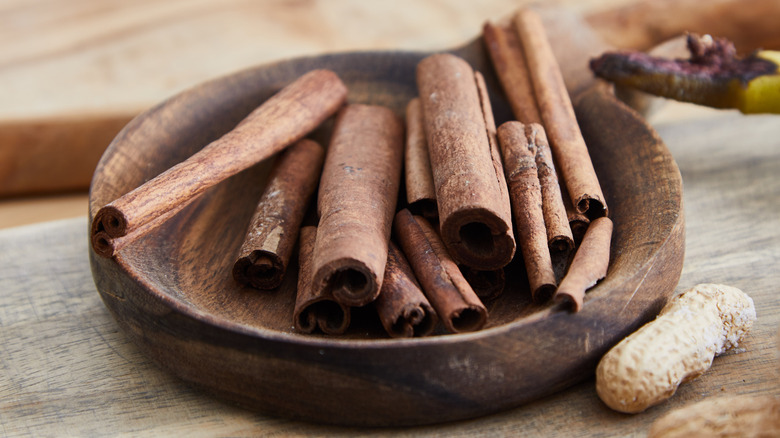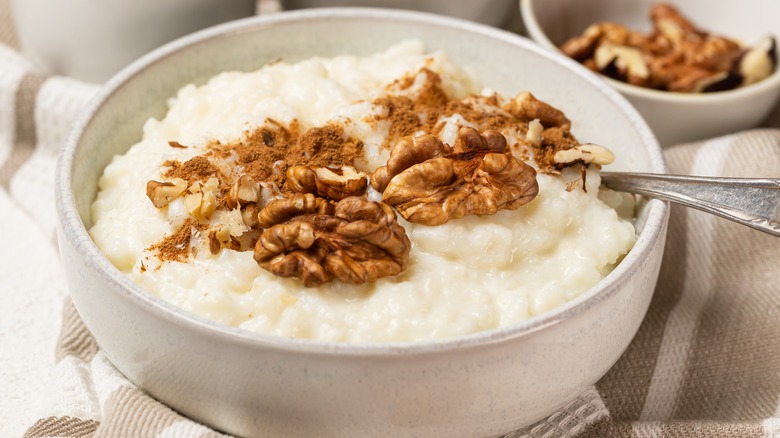Can Eating Cinnamon Help Control Your Diabetes? What Studies Say
Cinnamon is one of those warming spices that can sweeten the smell of a room or add extra flavor to a great breakfast bun. Many high school students were suspended when attempting the Cinnamon Challenge, which required swallowing a teaspoon of it dry. Although that challenge is thankfully over, adding spoonfuls of cinnamon to your diet might have some health benefits.
According to a 2021 review in Food Function, there are 250 different species of the Cinnamomum plant that produce cinnamon. Cassia cinnamon is the kind you'll find in the spice aisle of grocery stores, while Ceylon cinnamon comes exclusively from the Cinnamomum verum tree. The Ceylon cinnamon tends to be more expensive but more pure. Both types of cinnamon have anti-inflammatory, neuroprotective, and antioxidant properties. The polyphenols in cinnamon are thought to help restore the pancreas, which controls the release of insulin. The spice can also help regulate the gut microbiota and help shuttle glucose to fat and muscle tissue. These are some of the ways cinnamon may be able to control diabetes.
Specific studies are mixed
Earlier studies suggest that cinnamon helps with some of the effects of diabetes. A 2003 study in Diabetes Care had people with diabetes consume either 1 gram, 3 grams, or 6 grams of cassia cinnamon a day for 40 days. Compared to the placebo groups, the cinnamon-eating groups saw drops in their fasting serum glucose, triglycerides, LDL cholesterol, and total cholesterol levels.
A 2010 study in Diabetic Medicine found that consuming 2 grams of cassia cinnamon for 12 weeks led to decreases in HbA1c (a measure of average blood glucose) and blood pressure compared to control groups. However, a 2017 study in Nutrients looked at the effects of 3 grams of Ceylon cinnamon — a pure cinnamon — on fasting blood glucose, insulin, HbA1c, and inflammation in people with diabetes. This study found no differences. According to a 2020 study in Nutrition Journal, 3 grams of cinnamon a day for eight weeks didn't affect some of the mechanisms that impact inflammation in people with diabetes.
Combined studies show improvements for people with diabetes
Although individual studies on cinnamon are mixed, researchers find that cinnamon has some benefits when they merge several studies. According to a 2019 systematic review in Complementary Therapies in Medicine that combined 18 study results, cinnamon supplements can potentially reduce fasting blood glucose. However, this study didn't find cinnamon could help reduce HbA1c, body weight, body mass index, or insulin resistance. A 2019 meta-analysis in Diabetes Research assembled 16 studies and also determined that cinnamon may reduce fasting blood glucose. The study suggested that cinnamon could help with insulin resistance as well. Because different studies used different amounts of cinnamon, it's difficult for researchers to know the optimal amount for managing diabetes.
Consuming too much cassia cinnamon can possibly cause liver toxicity, according to a 2022 article in the Journal of Future Foods. That's because cassia cinnamon has a higher concentration of coumarin than Ceylon cinnamon. Coumarin makes up about 1% of cassia cinnamon, which means a 3-gram supplement of cassia cinnamon could have 30 milligrams of coumarin. The European Food Safety Authority says to limit coumarin to 0.1 milligrams per kilogram of body weight, which is about 6.8 milligrams for a 150-pound person.



